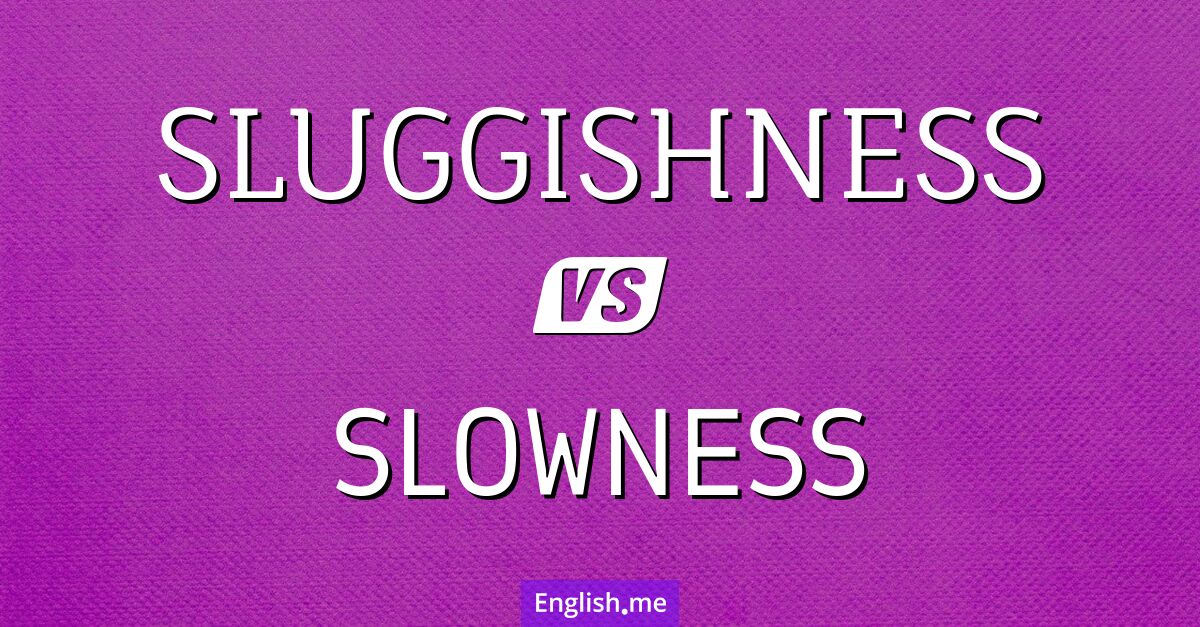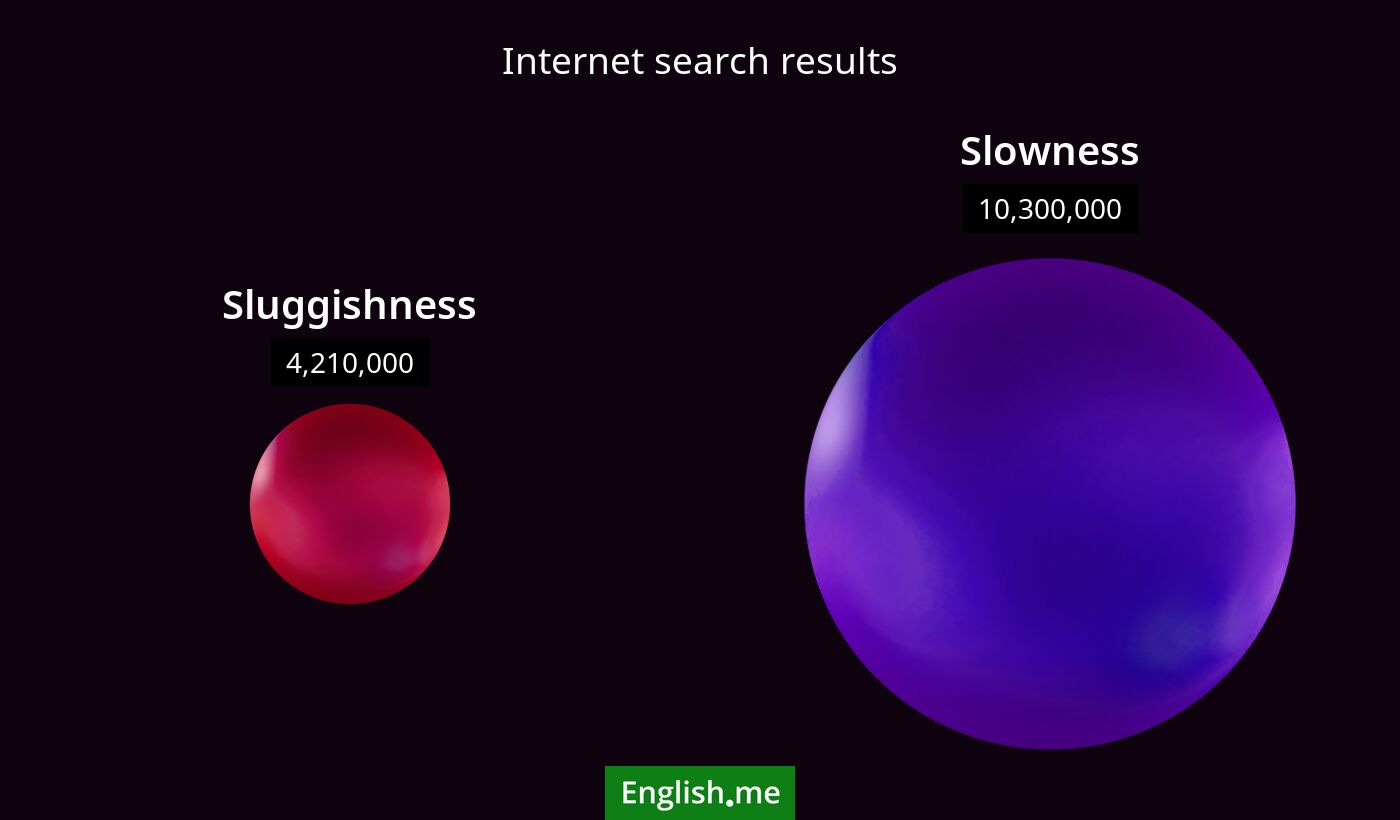Comparing shades of delay: "sluggishness" vs "slowness"
Reviewed and edited by  Lloyd Cooper 22/10/2024, 21:22
Lloyd Cooper 22/10/2024, 21:22
English.me team member

 What is similar?
What is similar?
Both "sluggishness" and "slowness" refer to a lack of speed or rapidity. They can describe the pace of something, such as a response or an action, indicating that it is taking longer than expected.
 What is different?
What is different?
While "sluggishness" often implies not only slowness but also a lack of energy or vitality, "slowness" simply refers to the state of being slow without additional connotations. "Sluggishness" can suggest lethargy or reduced functionality, whereas "slowness" is a more neutral term for describing pace.
 Which one is more common?
Which one is more common?

 Examples of usage
Examples of usage
Sluggishness- The patient's sluggishness was a concern for the doctors.
- The car's sluggishness on the highway was frustrating to other drivers.
- Her sluggishness in the morning disappears after a cup of coffee.
- The slowness of the internet connection was affecting productivity.
- His slowness in responding to emails is well known.
- She admired the slowness of rural life, finding it peaceful.

 English
English español
español française
française italiano
italiano deutsche
deutsche 日本語
日本語 polski
polski česky
česky svenska
svenska Türkçe
Türkçe Nederlands
Nederlands